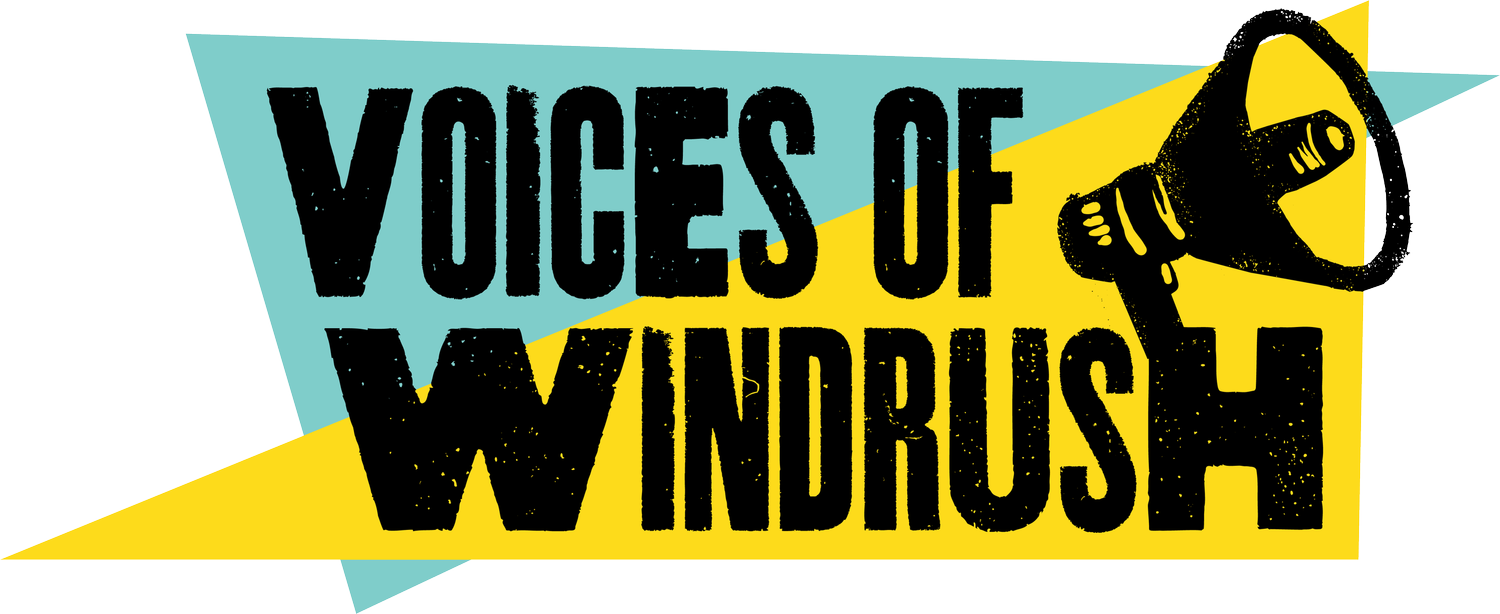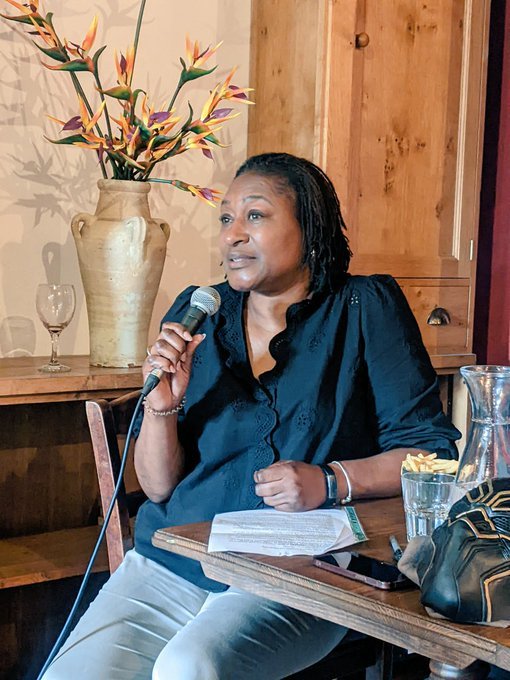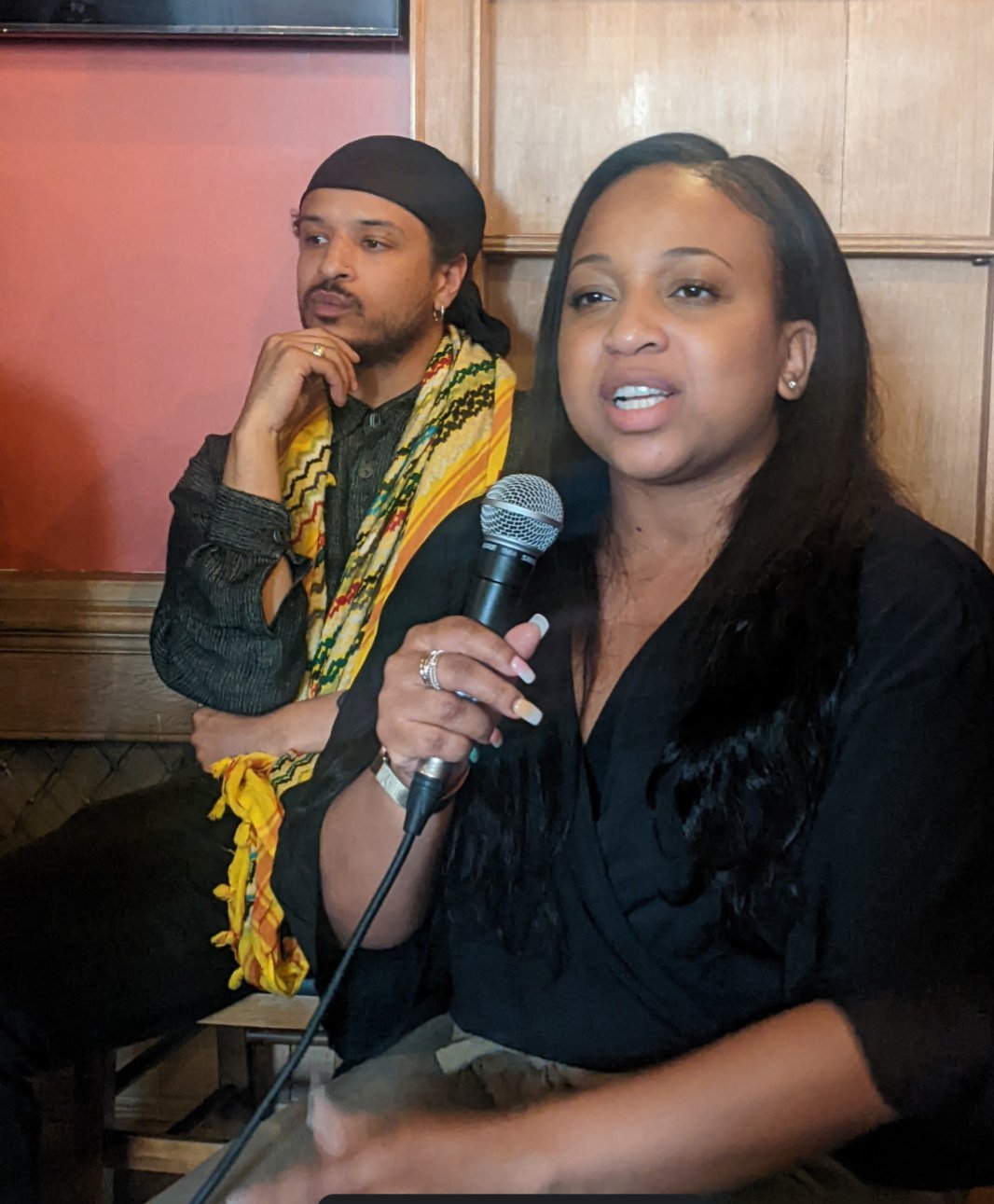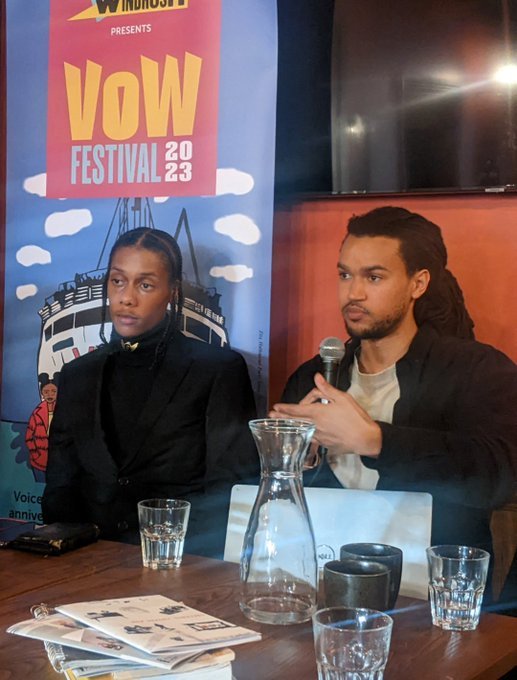Adultification & Stereotyping of Young Black People
The future is safe in the hands of the brilliant young people who took part in VoW's youth panel, moderated by Donna John, CEO of Ignite Youth, with law students Jerome Bond & Sarah Louise Burke, Tyler Davis Douglin aka Mr Prospect, GLA youth ambassador & Christxpher Oliver, youth researcher & consultant. Donna led the panel to think about & examine how the practices of adultification, stereotypying & racism, impacts the lives of young Black people and causes their exclusion from opportunities, and limits their attainment.
From Left: Donna John, Mr Prospect, Jerome Bond, Christxpher Oliver & Sarah Louise Burke
Christxpher described adultification as racism and believes use of the term excuses the authorities from being held to account for racism, even though the word has some value. Racism, bias, stereotyping, criminalizing and a lack of societal concern, affect young Black people who are forced to grow up to respond to have even a chance of survival. Having to learn about your rights is an act of forced adulthood. Society is constantly gaslighting young Black people, often seeing them as the problem & as criminals, as in the case of Child Q & others.
Mr Prospect thought the Windrush Scandal had caused young people to understand the harsh realities of the Black experience & become aware of the discrimination faced. Black youth are forced to grow up prematurely because they're always under attack and forced to explore ways of surviving. He sees the phenomena of adultification as flowing directly from the social & economic realities faced by Black people. Racism causes you to grow up prematurely, to stand up for yourself, to constantly be in survival mode. He referenced a sister having to collect a younger sibling from school, thereby losing out on walking home with her own friends, which bothers him. Donna invited the panel to examine whether physicality played a role. Tyrell thought there were issues around appearance & culture but economics played the major role.
Jerome agreed that socio economics dictated much of young people's responses to society which in turn leads to the stereotyping & adultification experienced. Using data from the Child Poverty Action Group, he argued that young people are forced into positions that society puts them in. Much of the skewed decision making of young people is based on their life realities. Policy makers fail to take responsibility & often fail to treat young people as equal members of society. Society is critical of the consequences without providing solutions.
Sarah agreed that adultification is racism, based on her experiences as a teacher & former head of department. Racism, lack of opportunity & poverty affect both the home life & school experience causing children to make difficult choices, some with severe consequences.
Sarah claimed there's a distinct difference to how Black pupils are regarded from her experience. They aren't allowed to have melt downs or react; there's a lack of cultural understanding of their actions which are often interpreted with negative impact.
Schools don't understand the lived experiences of their pupils even with programmes like Teach First which places graduates in urban areas, but without the tools to understand race disparities, the focus being on social inclusion. Many teachers lack empathy and schools struggle with a lack of resources to make a difference. Sarah queried the approach of parents whose aspirations weren't always in touch with their children & sometimes ended up causing serious harm. She thought parenting needed new framing, alongside teaching & schools.
Schools ignore the impact of racism on its pupil's well-being & attainment. It was his attendance at supplementary schools which wove black history into the curriculum, which improved his outcomes. Jerome argued that the issues were intractable & entwined with the practices of former colonisers who don't want those they oppressed to be educated or to attain success.
Mr Prospect, who's been stopped over 60 times by police, even when dressed in a suit & ironically whilst on route to meetings to discuss this very issue, says stereotyping of Black youth is the norm. Black youth are seen as criminals from a very early age. Too much energy has to go on counteraction & in learning about rights & questioning the grounds for your stop. He often has to advise young people not to walk in groups & how to deal with stop & search. Imagine focusing on these things in your youth. Greater police accountability is needed.
Jerome viewed governments as being uninterested in solving crime. The disproportionate use of stop & search of young Black men is a continuation of the stereotyping & harassment which destroys lives even when no further action is taken, due to the impact on well-being.
Christxpher described what he saw as drugs decriminalization at Glastonbury where he spoke recently. There was hardly any police presence compared to urban festivals. The oppression breeds anger & resentment. The Windrush scandal helps the Black community to understand oppression & needs strategies for dealing with the serious harm caused by racism & discrimination. The community needs a pluralistic approach & those causing the harm need to be held to account. The Gang Matrix, e.g., adds to the criminalizing of young Black people.
Jerome thought amplifying organisations working in this space is important. VoWFest is important as the authorities are content when they see the community celebrating or discussing narrow issues. Political & community alliances must be formed to implement the solutions. Mr Prospect thought there was a need to amplfy positive voices and demote the abundance of negative role models. Local government should be made to fund community champions & meaningful change making projects, but they've mostly given up on providing services to young people.
Donna concluded that biases remain in the education system & in society which causes many Black youth to underachieve. This needs dismantling. Sarah agreed that schools are perpetuating the problem & society, being generally anti young people, aids this manifestation.
Audience members pleaded for further dialogue. The problems can't continue into this generation. From joint enterprise putting culture on trial to low expectations, stereotypying & racism, all manifest in negative outcomes, & deny options & attainment to young Black people.




